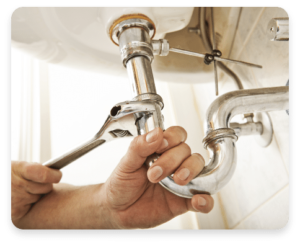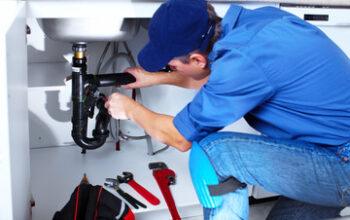Whether it’s an overflowing toilet or flooding from a burst pipe, a plumbing emergency can be devastating. These issues can cost you a fortune in repair costs, property damage, and lost productivity.
But not every problem needs an emergency plumber. Some can wait until normal business hours or can be fixed by shutting off the water. However, if you need some professional assistance, you can call Plumber Spring TX.
One of the most common reasons that people call emergency plumbers is because of clogged drains. Whether the pipes carry water or waste, when they get clogged, the water pressure in your home can be greatly reduced. That’s why it’s important to know how to prevent clogs before they happen.
Having the right tools on hand can also help you avoid needing an emergency plumber for this issue. For example, a basic plunger can often clear out a small sink or tub clog. But if the clog is deeper in the pipe, you may need to use a drain snake. Many plumbing professionals recommend trying a consumer-grade model to start, then switching to a professional tool once you have more experience.
You can also prevent a clog from becoming an emergency by knowing where your water shut-off valve is located and turning it off as soon as you notice any problems. Then, you can contain the problem and save yourself a lot of money and headaches.
In addition to reducing your water pressure, a clogged drain can also make your home smell unpleasant. That’s because sewage and other waste materials can back up into your drain lines and make their way into your house. This is a health hazard and should be addressed as quickly as possible.
When a clog happens, it’s usually due to food or other substances that don’t break down, such as egg shells, grease, or hair. If you’re unsure of what caused the clog, you can try to clear it yourself by pouring a mixture of baking soda and vinegar down the drain. Just be sure to add a bit of salt to help with the bubbles, as the reaction can sometimes be more damaging than the clog itself. If the solution doesn’t work, it’s time to call an emergency plumber. Remember, though, that if raw sewage is backing up into your toilet, that’s a very different situation and requires immediate attention. If it’s not contained quickly, you could be dealing with a dangerous and toxic mess.
Burst Pipes
An emergency plumber is often called to deal with situations like a burst pipe. It’s not just a nuisance—water that leaks out of a burst pipe can ruin carpeting, wood floors, and other surfaces in a home or building, cause mold and mildew, and potentially damage furniture, electronics, and heirlooms.
A burst pipe can be caused by a variety of factors, including a drop in temperature, corrosion, and clogs. These problems weaken pipes and create a situation in which the water pressure inside the pipe is greater than its strength. This leads to cracking or bursting.
If a pipe is leaking or has already burst, the first step is to turn off the water supply, which can be done by shutting off the main valve in your home. It’s also important to move any valuable items away from the impacted area to prevent water damage and to make it easier for an emergency plumber to access the problem when they arrive.
It’s also a good idea to take photos of any damage to your property, especially before cleaning it up or throwing anything away. This will help if you need to file an insurance claim later on. If possible, try to shut off the water supply to any fixtures that may be affected by the damaged pipe. If you can’t do this, then make sure to shut off your home’s water heater, which can be a source of flooding if the pipes burst.
The most common cause of a burst pipe is a drop in temperature that causes the water inside the pipe to freeze. This can happen if the pipes are located outside of the building insulation, in crawl spaces, or in unheated areas like attics and basements. Pipes in mobile homes or three-season cottages are also at higher risk of freezing because they tend to have thin walls and less insulation than other types of buildings.
If you’re a homeowner in an area with cold weather, then it’s a good idea to flush out your piping system before winter arrives. This can help reduce the chances of your pipes freezing and bursting, which can be expensive to fix.
Faulty Shut-Off
When a pipe bursts or your washing machine hose leaks, it’s certainly a plumbing emergency that needs to be taken care of right away. But if you’re finding water puddles on the floor in the middle of the night or your ceiling is leaking into your bedroom, it might not be a pressing issue that warrants an emergency plumber. Before calling for help, ask yourself a few questions to assess the situation and determine whether it really is an emergency.
The first thing you should do when a problem occurs is shut off the water. This is usually done by turning the valve to the off position. The location of this valve varies depending on the fixture; for example, it might be located underneath a sink or behind a toilet. For bigger problems, you might have to turn off your home’s main water supply.
Shutting off the water can buy you some time before a plumber arrives, and it will also stop the flow of water into your home, which can lead to further damage. It’s a good idea to make sure everyone in your home knows where the shut-off valve is for each fixture so they can turn it off in an emergency.
Another important step to take before calling an emergency plumber is to document the damage with pictures and video. This will help reduce the likelihood that an insurance company will refuse your claim due to pre-existing damage. It’s also a good idea to call your water supplier before calling a plumber; they may be able to send someone to fix the problem at no cost to you.
A faulty shut-off valve can turn a small plumbing problem into a big one. Be sure to check them regularly to ensure that they are working properly. If you notice that a shut-off valve is leaking or not closing completely, call a plumber to have it replaced before it fails during an emergency. This will save you money in the long run. Also be aware that many plumbers charge a service fee just for coming out to your home during off-hours, but this may be absorbed into the repair cost if it’s minor.
Water Leaks
Whether it’s coming from your toilet, shower, kitchen sink, or dishwasher, water leaks are never good news. They can cause extensive damage in a short amount of time if left unchecked and can lead to dampness, mold, and other health issues in your home. Water leaks can also be a sign of bigger problems with your plumbing system, like broken pipes, which should always be investigated by an emergency plumber.
When you call an emergency plumber, be sure to explain the situation as clearly as possible so they can assess and repair the problem promptly. It may help to take notes as you describe the issue so you can refer back to them later. Also, if you’re able to turn off the water supply to the affected area, do so, as this will help minimize any further damage.
Not all plumbing leaks are visible, especially those that occur within the walls of your home. However, if you’ve noticed a sudden increase in your water bill, this could be a sign of a leak somewhere in your plumbing system. You can also check for a leak by turning off all the water-using appliances in your home and then checking your water meter. If the meter dials have moved, this indicates there is a leak somewhere in your plumbing.
Leaking boilers, radiators, and taps are all common causes of water leaks. Other signs of a leak include seeing damp patches on the wall or ceiling, hearing running water (especially upstairs), noticing puddles on the ground, and a high water bill. Leaks are best fixed as soon as they happen to avoid any further damage and save on your water bills.
Not all plumbing problems will require the services of an emergency plumber, but it’s important to know what to look out for so you can act quickly if needed. By doing your research and finding a reputable 24-hour plumber, you can rest assured knowing that if an emergency does arise, it will be dealt with immediately. For more tips on hiring a plumber, click here.

